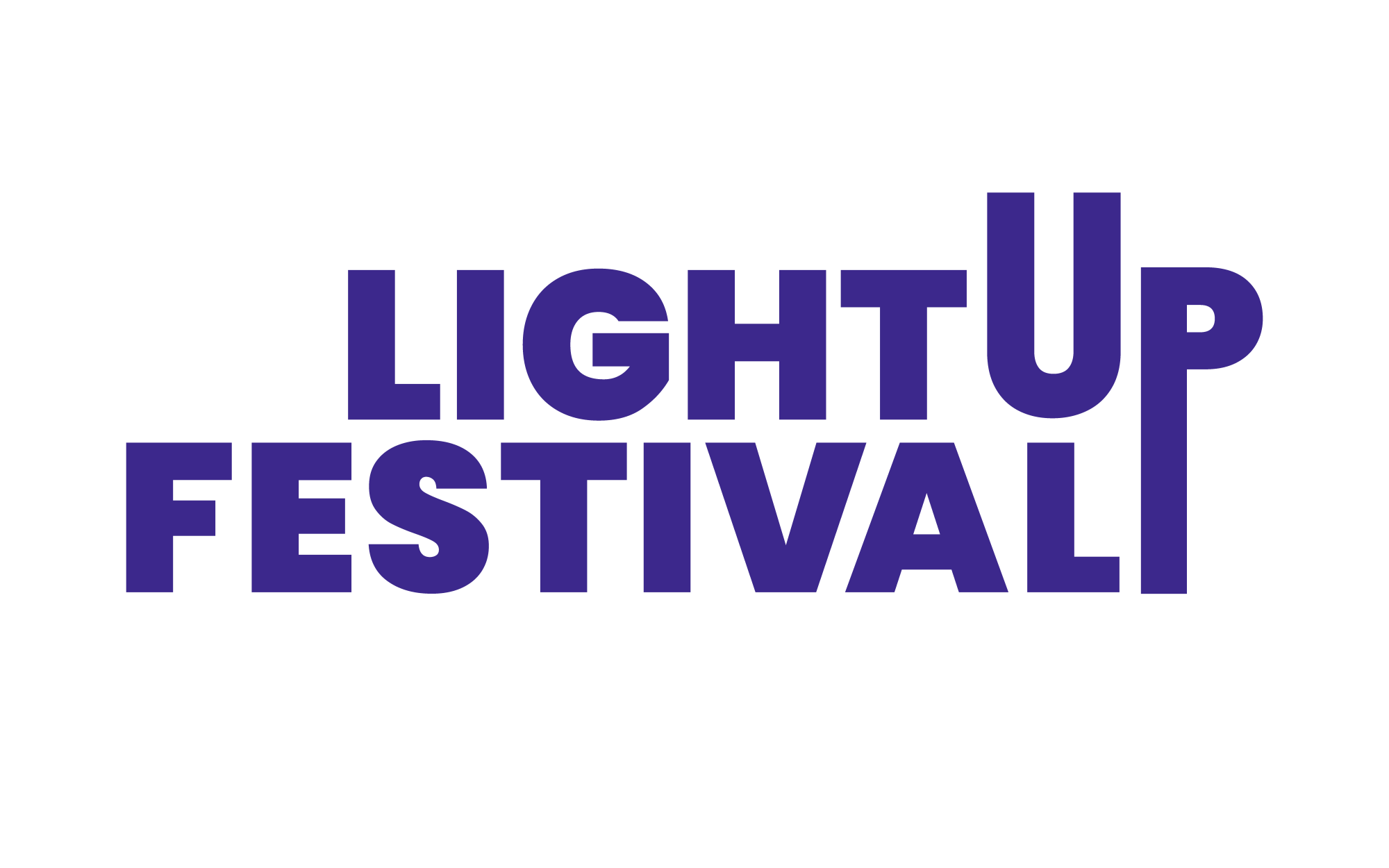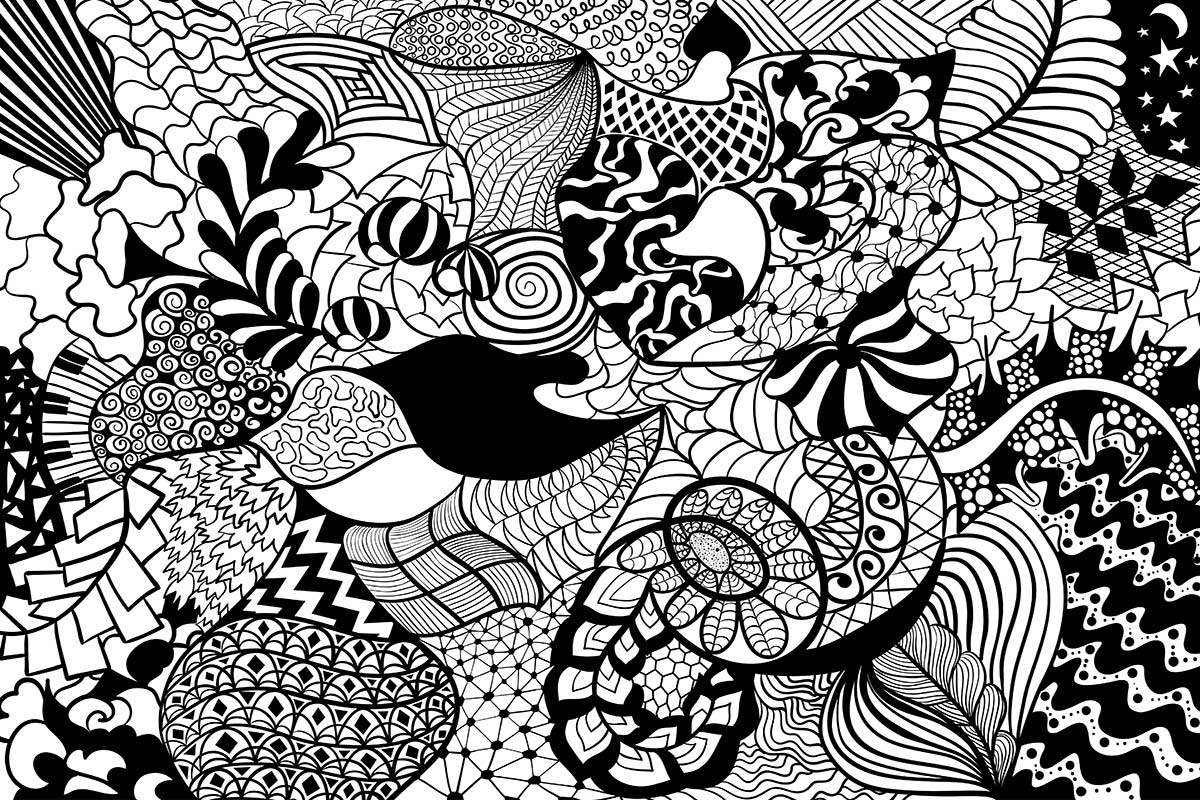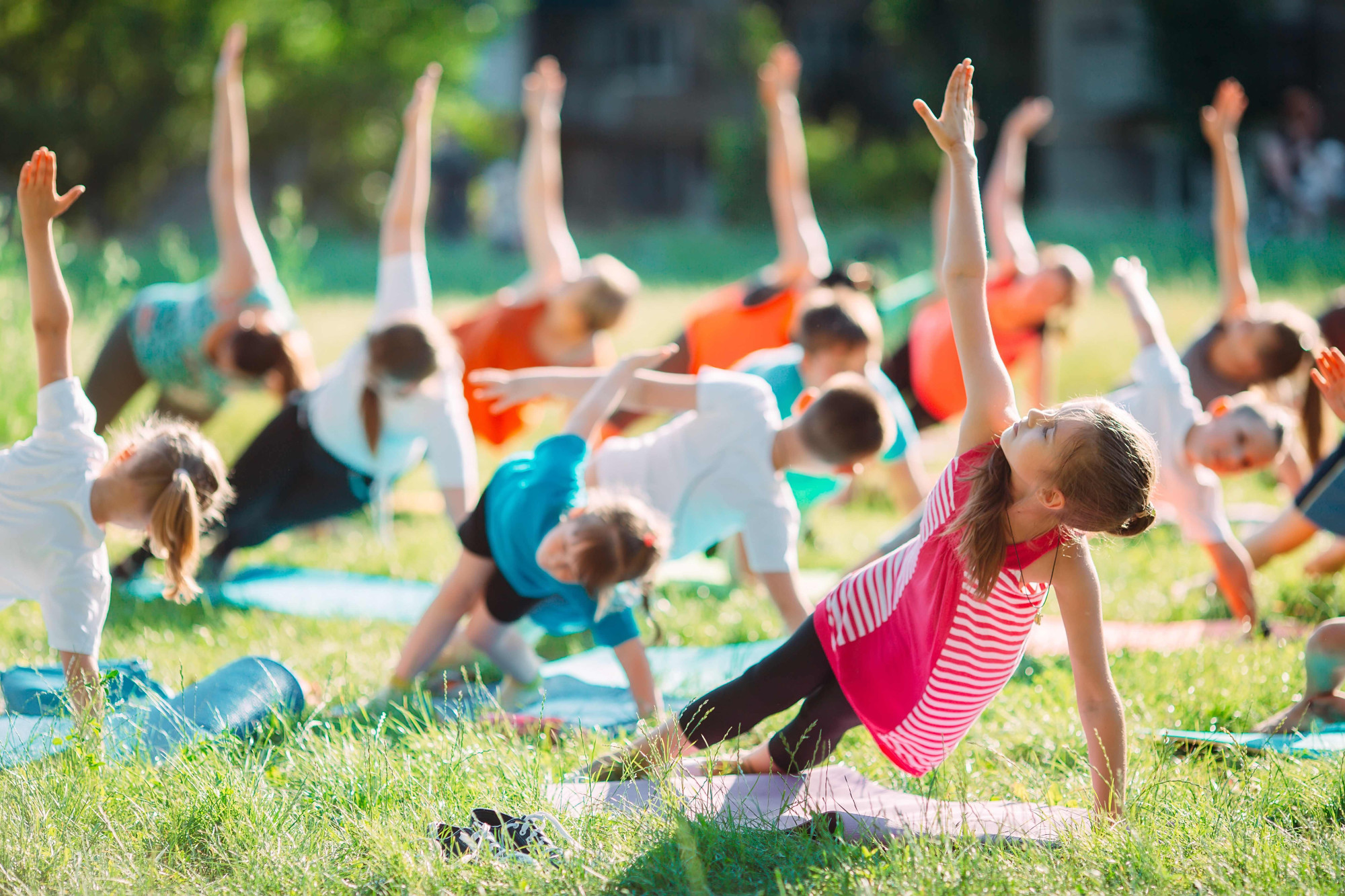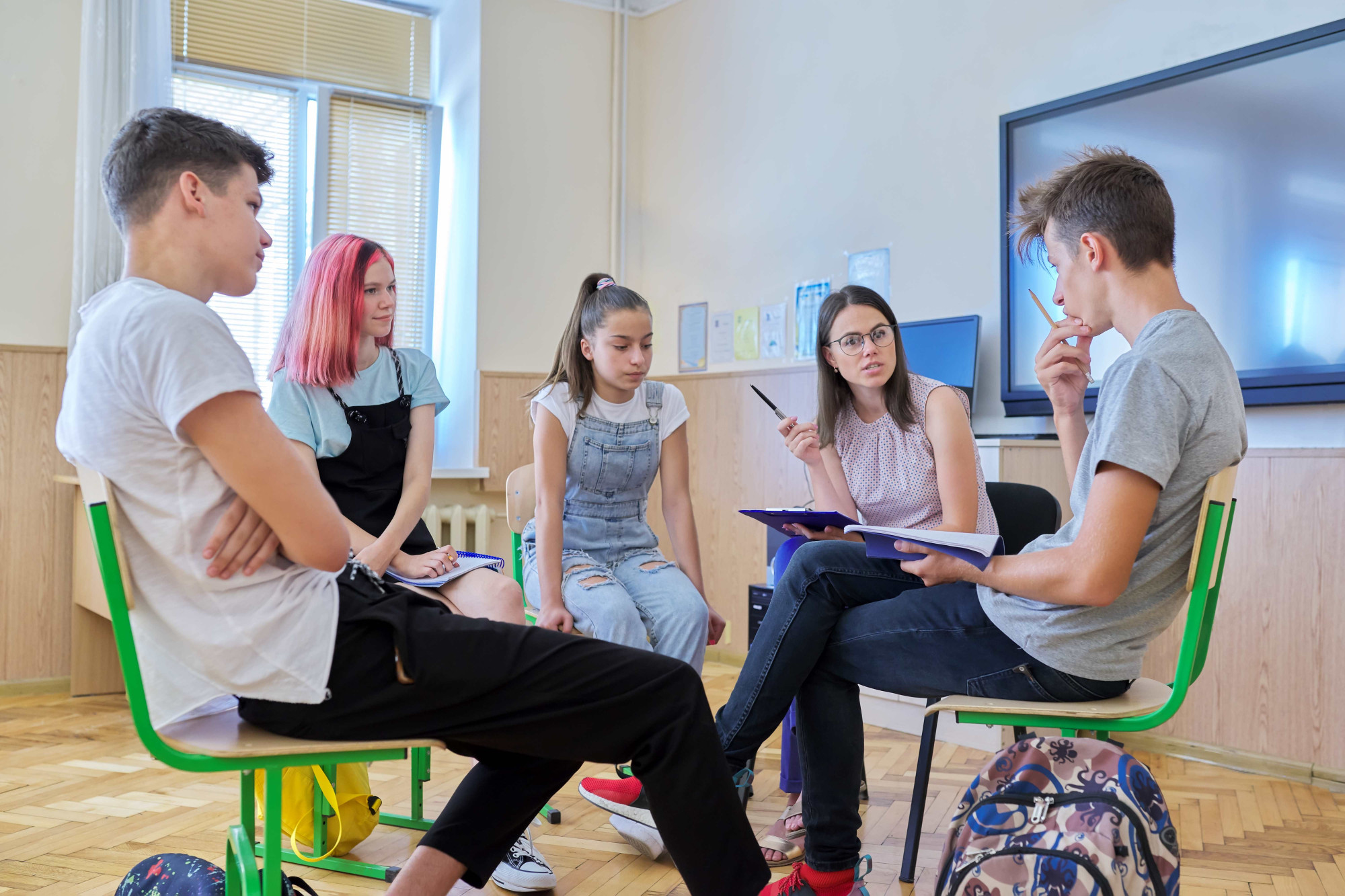21st Century Pedagogy

Our program is rooted in active, critical and relevant learning through problem based projects, workshops with extracurricular experts, rituals of wellbeing, real life challenges and rites of passage for personal development. By integrating cutting-edge technology, interdisciplinary projects, systematic journaling, coaching/mentoring and a focus on wellbeing, X-School is at the forefront of evidence based pedagogy.
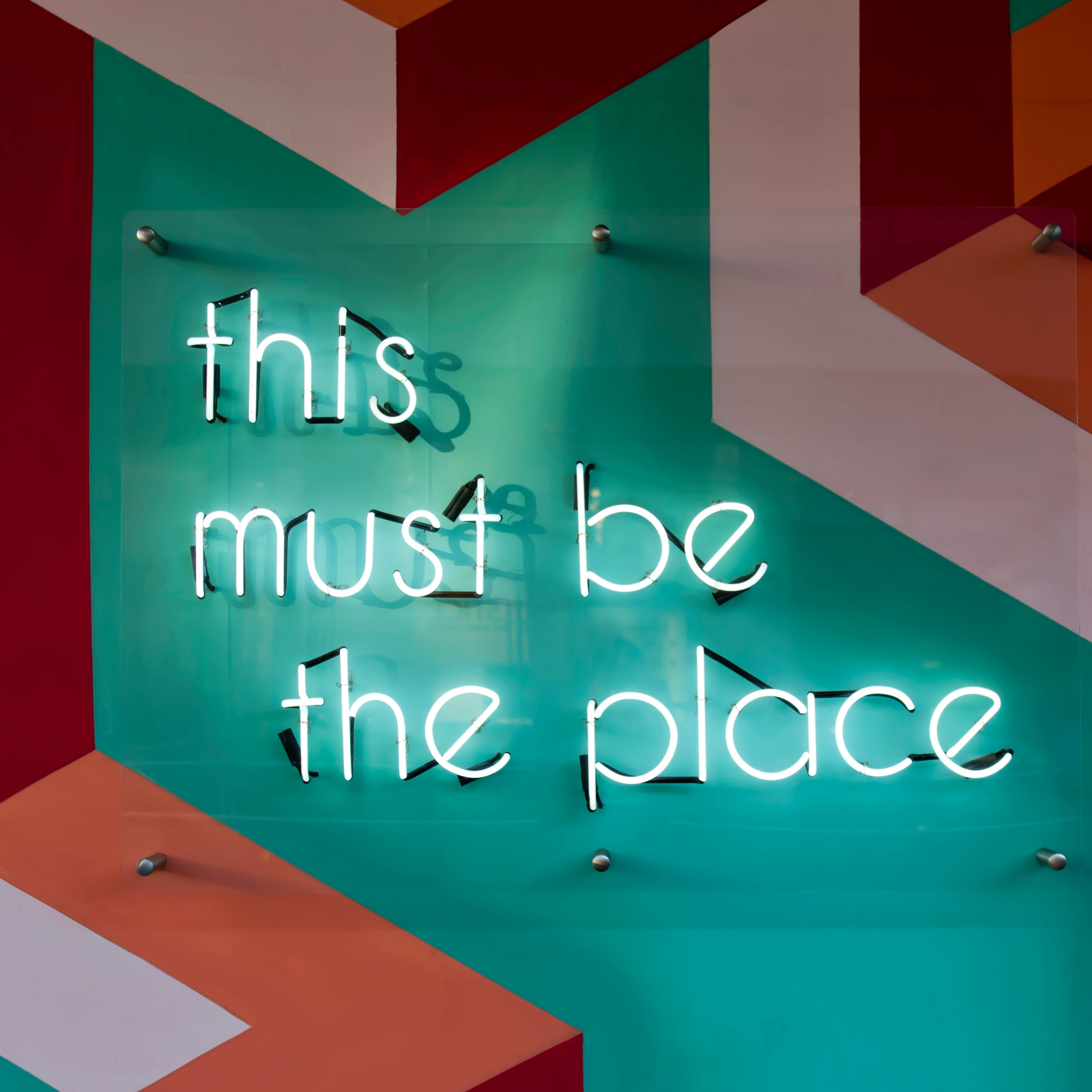
Learning Principles
Evidence-based learning: In the 21st century, we know what effective learning looks like through the work of educators, neuroscientists, and educational researchers.

Curriculum
The students are at the center of attention. With increasing independence, they are transformed from participants who are provided with information according to the specifications of teachers into active participants who take responsibility for their learning and have the competence to act and shape it.
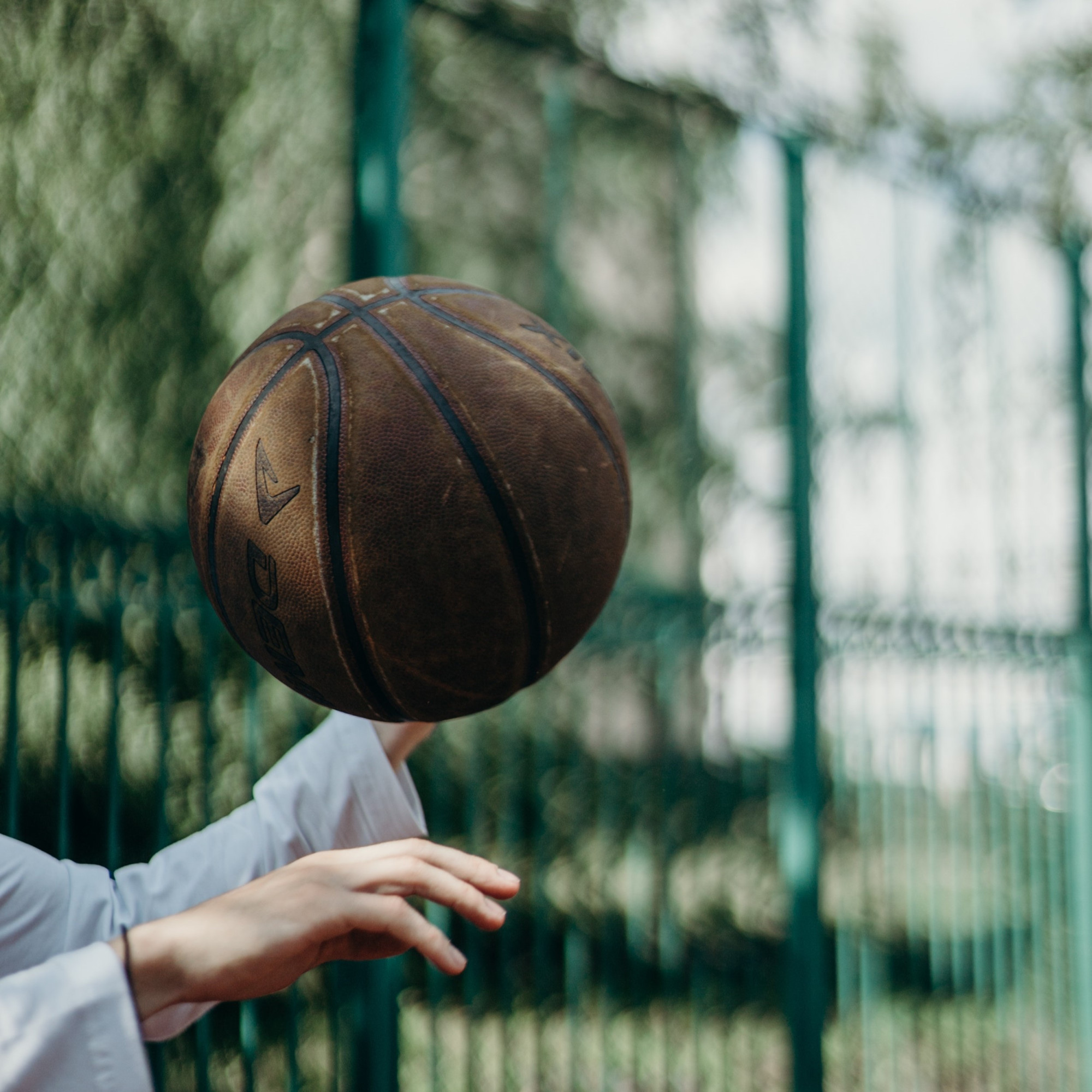
Assessment
At X-School, the emphasis is on learning, not grading. The real goal of assessment is to improve student performance, not to test it.
Learning Principles

Curriculum

The students are at the center of attention. With increasing independence, they are transformed from participants who are provided with information according to the specifications of teachers into active participants who take responsibility for their learning and have the competence to act and shape it.
Subjects are not only taught in a fragmented way as independent islands of knowledge but rather are connected in relation to life. Essential skills, attitudes and knowledge of the 21st century are linked to relevant topics and problems from the students' lives. Learning is not a matter of memorizing facts and formulas but of holistic competence building.
The curriculum sets the course for lifelong learning by retaining the joy of learning and learning itself. It accounts for diverse forms of knowledge and learning, different intelligences, and incorporates technology and multimedia.
The school does not encapsulate education, but acts as a nerve center connecting teachers, students, parents, and the community with the wealth of world knowledge. Students collaborate with experts, parents, companies, initiatives, and institutions from around the world. The 21st century curriculum is a global curriculum, and the 21st century classroom is a global classroom.
The long school year is broken into three units of study. Prior to each 10-week unit, holistic goals and milestones (OKRs) are established by students, parents, and teachers. The learning units, in turn, consist of agile sprints that connect individual and collective processes and conclude with formative feedback. Students navigate their learning journey in such a learning landscape with a digital logbook and personal mentoring and document their learning journey in a portfolio.
As a recognized al international school following the UK Curriculum, we are committed to provide each student with a accredited degree (e.g. GCSE and A-Levels).
Therefore we provide the following learning formats:
1. Personalised Workshops
Flexible length, subject specific
Whether Coding, Math, or English, students attend workshops to gain subject-specific skills. Personalised learning, empowered by AI and our expert coaches, is used to generate personalised learning journeys tailor fit to the individual learning requirements, interests and skill levels of each student. Our personalised workshops are designed to optimise motivation, engagement and performance, unleashing the full potential and well-being of our students.
2. Problem based Projects
10-week learning unit, interdisciplinary
Procedure
Can we trust the news? What is the best way to handle money? How can we help the homeless in our neighborhood? Projects begin with a question, topic, or phenomenon of interest to the learning community. Initially, students move from a big abstract issue to specific guiding questions and concepts to solve the challenges that arise. They need to examine available resources, as well as obstacles, to determine work processes and methods, and develop, implement, and evaluate solutions as a team. In the process, the students reach their limits. In order to move forward, they must acquire technical knowledge and skills. Thus, subject-specific sprints emerge from authentic learning needs within a project. These are organized through inputs, self-organized learning, and tutorials.
Inputs
Inputs are short subject-related lectures by subject teachers and experts. The inputs are not meant to regurgitate knowledge to the students. Rather, the aim is to introduce subject-specific topics in an interesting way and to provide learning impulses (perspectives, methods, frameworks). Students work independently on their own or in groups to work in self-organised learning.
Personalised self-organised learning (SoL)
For most of the 20th century, education was a process of transferring knowledge from a higher authority, the teacher, down to the student. This model is simply no longer sufficient to keep up with radical change in the 21st century. At the core of SoL is the shift from a teaching-based to a learning-based approach. The student must take initiative, acquire knowledge in a self-directed, self-organised, and self-reflective manner, evaluate it, and apply it to solve tasks. In this learning phase, students work critically alone or in groups, research and explore, make mistakes and learn from them. The learning material is, just like in the workshops, generated personalised for each student, customising the learning strategy, the context and the difficulty level.
The teachers are in the immediate vicinity, accessible to all students at all times. However, the first contact person is always the peer. This communication chain creates a sustainable, cooperative system in which students also teach each other and thus deepen the knowledge they have acquired. Longer SoL units are accompanied by tutorials.
Tutorials
Teachers, older students and experts regularly offer specific tutorials during the sprint (students can also ask for a specific tutorial in the digital system). These are used by students who want further help or consolidation at a certain point, or those who simply have a desire for the topic. In the tutorials, problems are presented and solutions are discussed in a small group. Subject teachers use students of other graduation levels as tutorial leaders, so that all learners become teachers.
Once the sprint with input, SoL and tutorial is completed, the group returns to the project, ready to apply the acquired knowledge to move forward in the project. Each project culminates in a deliverable. This is shared with the world beyond the school offline (performance, exhibition, presentation, etc.) and online (social networks, digital gathering, etc.). (‘Learn, Create, Share’ framework). To do this, the school's doors are opened to the public and the entire school community and city residents come together to experience the results.
The process of a project at X-School can be summarised as follows:
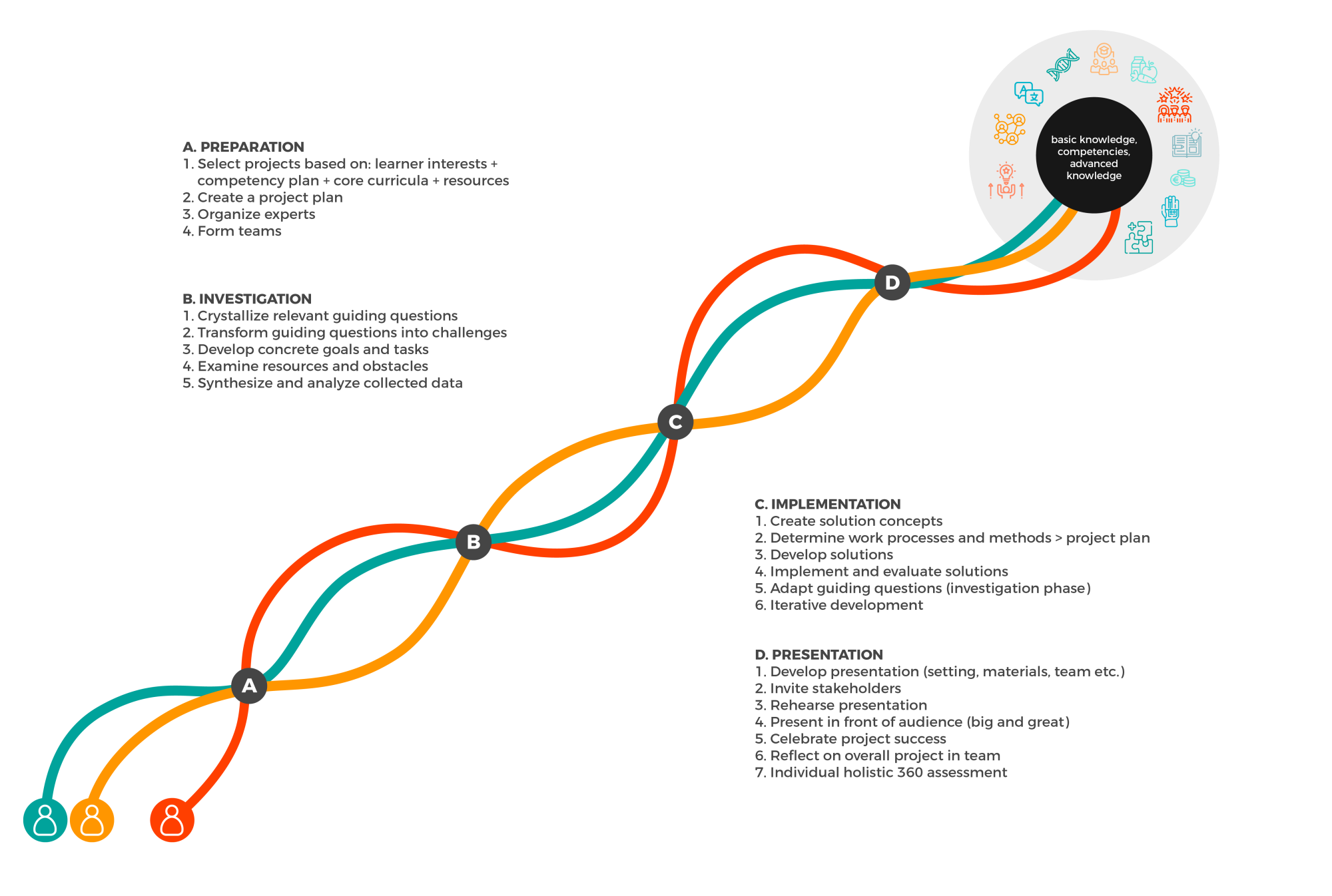
Benefit
Problem-based learning is evidence-based learning. International studies show that project-based learning increases students' academic achievement. Although teachers and the specifics of instruction varied widely across classes and countries, the superiority of problem-based inquiry persisted in every situation, demonstrating remarkable generalizability. The results of these studies contribute to the consensus that problem-based learning is highly effective academically, especially in terms of longer-term learning outcomes, and they are endorsed by the stakeholders most concerned-teachers, students, and parents. By the end of each project, students have actively learned a variety of subjects in the core curriculum and the competencies called for therein in a memorable way because they are meaningful in terms of relevant application.
Beyond the subject learning experience, the projects have other benefits:
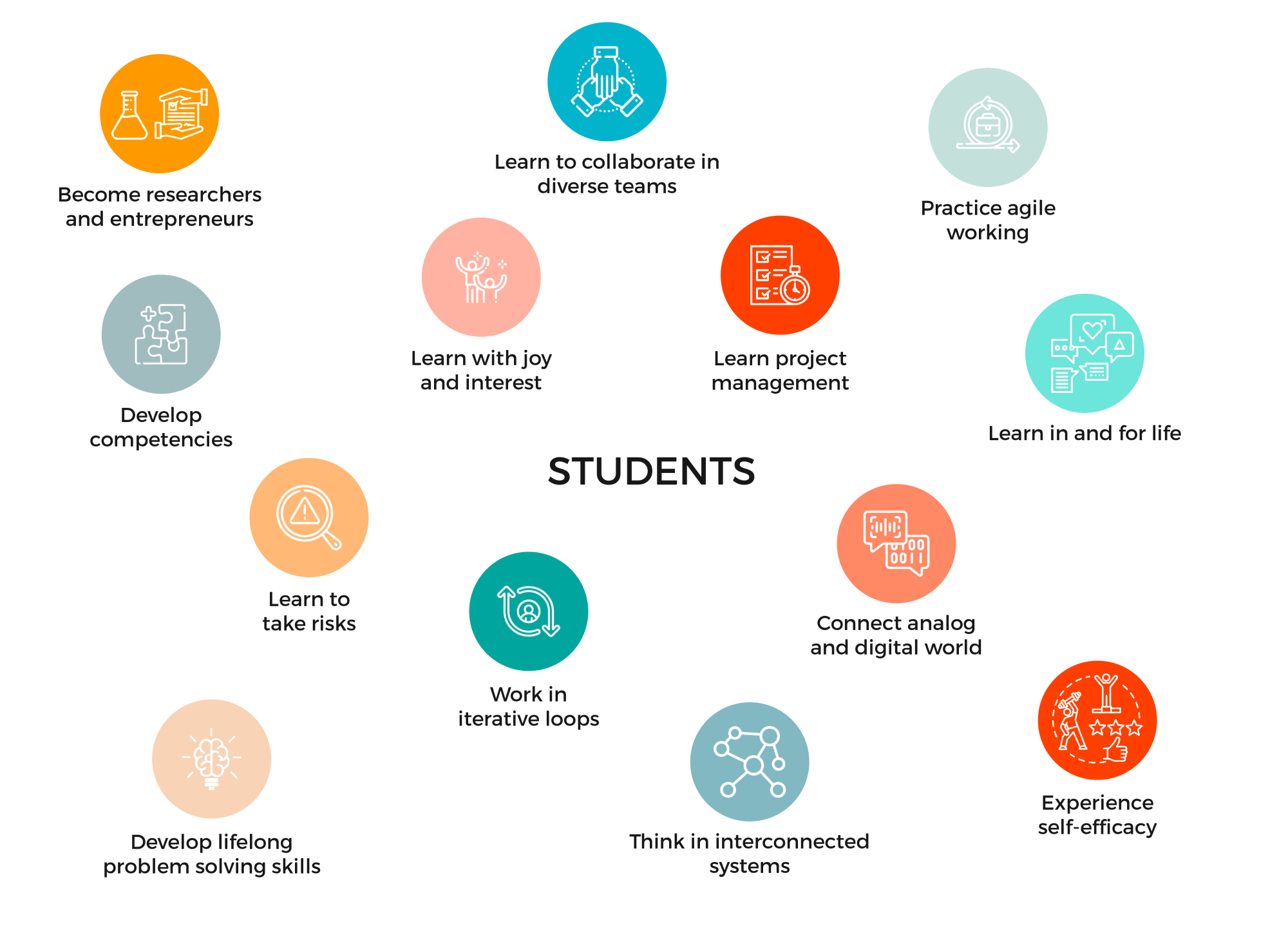
Each project consciously and purposefully connects subject matter knowledge with X-School core competencies of the 21st century. Communication, collaboration, self-leadership, strategic thinking, entrepreneurship, and leadership skills are in the nature of this work anyway, as students must manage their projects, negotiate, assign tasks, and find ways to collaborate with diverse groups. They develop their vision, make plans, initiate ventures, learn to relate to each other in functional ways, deal with defeat, and learn from mistakes. Students become aware of their ability to find out what they need to know and use this new information to find solutions to situations for which there is no obvious answer. They gain more confidence and soon engage in the process outside of the classroom, and ultimately transform lifelong problem solvers. In the process, they combine analog and digital tools to create products of social value. They experience self-efficacy and feel they can help shape the world which bends the sense of powerlessness that can lead many young people into social apathy, nihilism, or fanaticism.
3. Real Life Challenges
Flexible length, competency based
Helping an elderly, performing stand-up comedy on an open stage, living as a homeless person for 24 hours—none of this has anything to do with school? With us it does! X-School activities are competency-based, subject-independent challenges and nudges in and for life.
Process
Each school year, there are three unique actions for the students, one action per learning unit. The actions are based on the competencies of the corresponding learning unit and can be created and adapted by the learning community. Students can also propose actions to be included in the catalog if they meet the school's criteria.
Benefits
Within the framework of the actions, students should have experiences that are formative. Future competencies are acquired in this format through unique life experiences outside the comfort zone. Experiences such as these, which are unusual and would otherwise be avoided, are taken up here as a challenge with the group.
Examples
4. Rituals
Habits of success
Small practices can do big things when they become habits. Our commitment to well-being is woven into the fabric of daily school life. Through structured rituals, we aim to instil habits that promote both personal success and a holistic sense of well-being.
Examples
How can this look in practice?
At X-School, our curriculum and timetable are meticulously crafted to balance online learning with enriching offline activities, fostering a comprehensive and flexible educational experience for our students.
Weekly schedules at X-School are dynamic, beginning with setting individual mastery goals with a personal coach. The week unfolds with a blend of fixed and flexible activities, including subject based workshops, interdisciplinary problem based workshops and real life challenges, expert mentoring sessions and sport sessions - all tailored to their individual strength, learning requirements and interests.
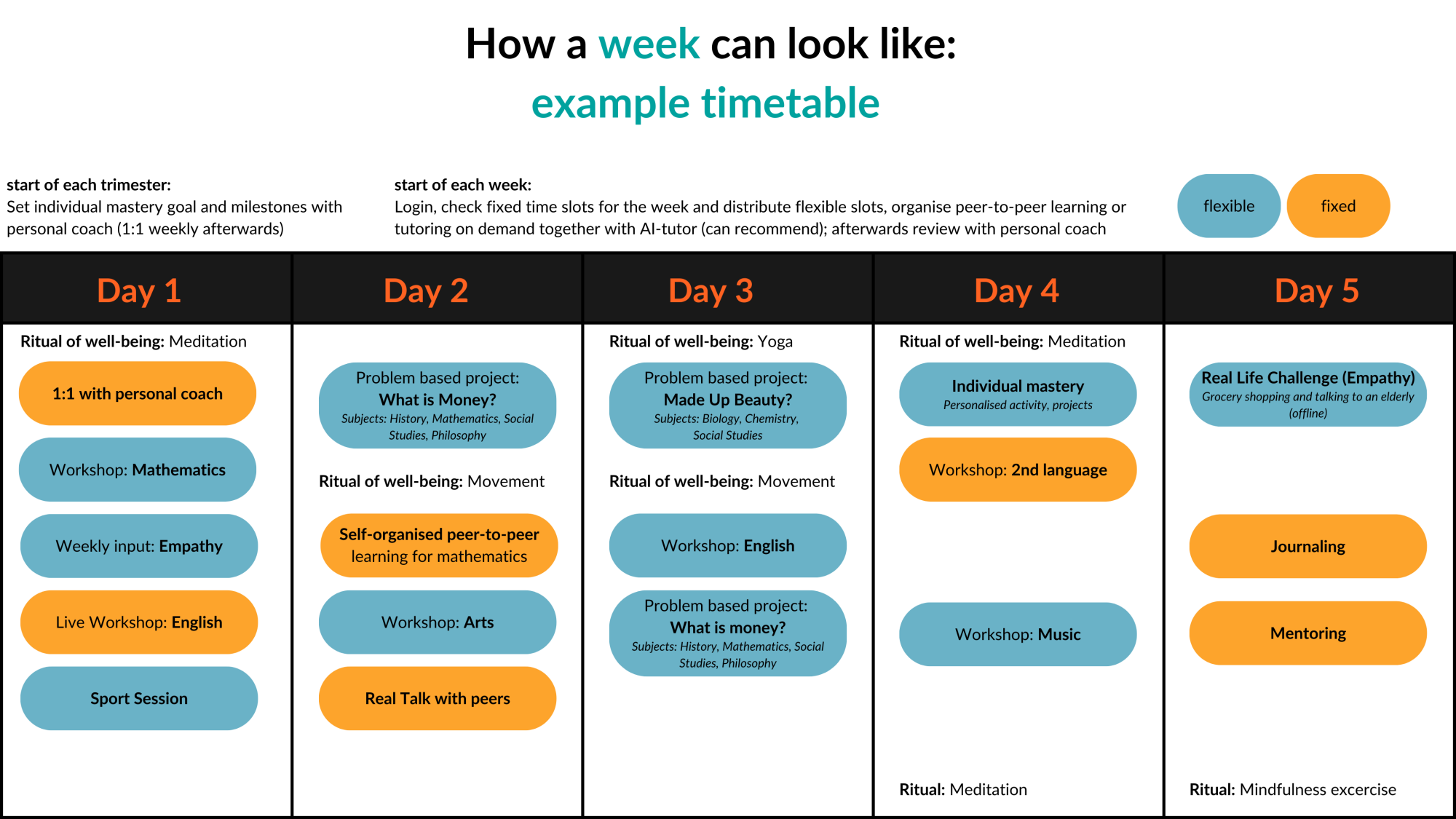
At X-School, each day is a harmonious blend of inspiration, personal growth, and community connection, tailored to nurture the future leaders of the world. Imagine your child starting the morning with a rejuvenating yoga session, cultivating mindfulness and physical well-being. This is followed by a personalised learning experience, with AI-enhanced lessons designed to adapt to their unique learning style. As the day unfolds, they engage in live interactive sessions with global visionaries, sparking their curiosity and broadening their horizons. Afternoons are dedicated to real-world challenges, fostering a sense of purpose and empathy as they contribute to the community. At X-School, we don't just educate; we empower your child to weave their own tapestry of learning and life, creating an education as extraordinary as they are.
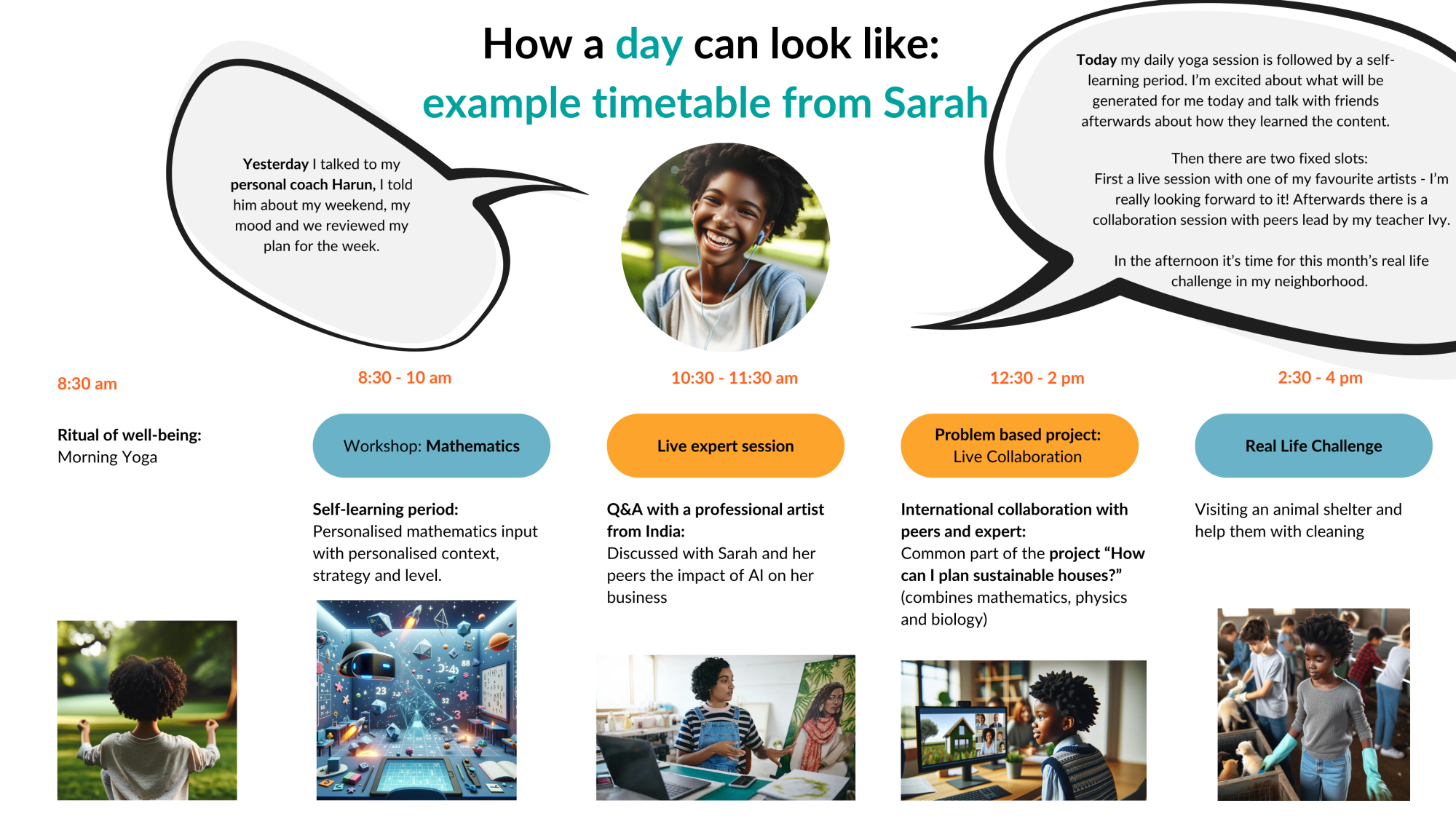
At the end of each trimester, milestones are achieved, such as mastering communication through English and Music or combining creativity with Arts and Philosophy. This structure ensures that every student at X-School not only meets educational standards but also develops as a holistic individual ready to thrive in the real world.
Parents can rest assured that their children will be part of a nurturing, intellectually stimulating environment that prepares them for the future while keeping them grounded in the present.

Assessment
As a comprehensive international online school following the UK National Curriculum, X-School offers all relevant qualifications: From the first school-leaving certificate GCSE after year 11 to the highest school degree A-Level after year 13.
Assessment for learning
At X-School, the emphasis is on learning, not grading. The real goal of assessment is to improve student performance, not to test it.
Each student at X-School is assigned a coach. With their help, students receive a systematic, differentiated profile analysis at the beginning of each quarter based on a line of inquiry: How is their academic performance? Where does the student stand in terms of future competencies? What strengths are emerging? What do they want to work on? Based on this, they set holistic personal goals and decide on their milestones along the way (OKRs). In the course of the learning unit, there are firmly scheduled weekly meetings in which the reflection of the previous week and the planning of the next week are systematically discussed. It is about successes/failures, learning methods and management, motivation and well-being in an ‘anticipation - action - reflection’ cycle (AAR).
The core of this routine is that the evaluation of the sprints is not aimed at a final assessment of performance, but spirals to continually provide new impulses for learning optimisation.
The students are involved in the process, so they learn to reflect on themselves and to relate the perception of their performance to the image others have of them. At the same time, they practice self-reflecting on their learning process: Which learning method suits them best? What did they struggle with? How was their time management? A student’s entails not just completing the tasks set by teachers and textbooks, but to actively manage and understand their learning progress. This results in stronger metacognition and self-direction.
Personal development
The graduations from white, to blue, to purple, to brown, to black are not based on professional achievement, but on personal development.
The graduation itself consists of an initiation ritual. In ancient cultures, such rituals as markers from one stage of life to the next are an important means of marking personal growth and strengthening the community. In X-School's rites of passage, each student faces an individually tailored challenge that takes them out of their comfort zone. This is discussed and set up among the student, guidance counsellor and family. For one student, this may mean confronting the roots of his anger; for another, it may mean having a frank conversation with his mother. These rites of passage can be very emotional for those involved, but each student moves on to the next stage safely and maturely.
In it, the student faces a personal challenge that has grown out of the experiences of coaching in that particular year.
With each graduation level, the student's role in the school system also adjusts:
In the ‘White’ stage, teachers guide the child so that he or she can acclimate to the school culture. The school provides extensive guidance at the beginning but removes it when it is no longer needed. With each graduation level, students earn more freedom, participation, and self-determination. At the same time, their role within the school structure grows with each graduation. They assist in the organisation, design lessons, choose projects, design spaces, and resolve conflicts. In this way, the school years are passed through as a process towards more independence, in which more and more is controlled by the learners themselves.
